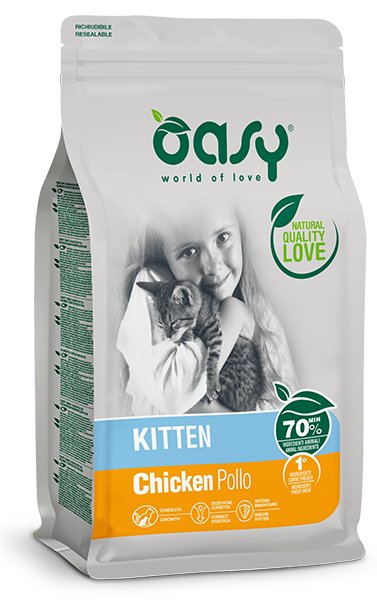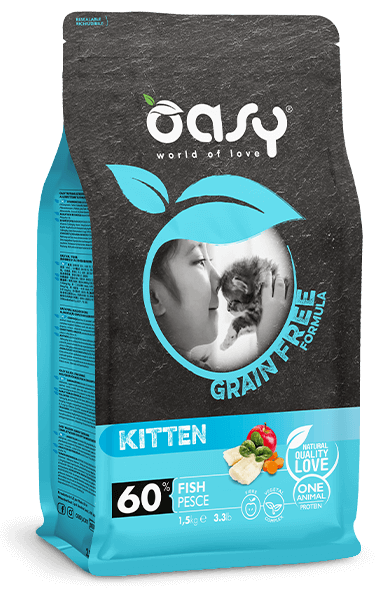Everything you need to know about cat gestation: duration, signs, and how to care for the mummy cat-to-be until and after the birth.
Cat pregnancy is a
fascinating and delicate period during which the future mummy cat prepares to give birth to her kittens.
Understanding how long a cat's pregnancy lasts,
recognizing the signs of gestation, and
knowing how to care for a pregnant cat are essential to ensuring a
safe and healthy experience for both the mother and her kittens. Here’s everything you need to know.
How long does a cat's pregnancy last?
Just like in
dog pregnancy, the
duration of a cat's pregnancy differs from that of humans. While it can vary, it generally lasts around
two months (between 58 and 67 days, depending on the breed).
Knowing the length of pregnancy allows you to
monitor your cat’s health, plan veterinary check-ups, and ensure she receives the right nutrition and care throughout this period.
It’s crucial to observe your cat during pregnancy to
spot any potential issues or complications early on. If she hasn't given birth by day 70, it is advisable to
consult a veterinarian to determine the best course of action.
What are the signs of cat pregnancy?
One of the first signs is
weight gain, which becomes noticeable about three weeks after fertilization. A pregnant cat may also
show an increased appetite or have
specific food cravings. She might also
seek more affection than usual and look for
quiet, hidden spots to prepare for birth.
Around the 21st day of pregnancy, her nipples will swell and turn a darker pink, which is another clear indicator of pregnancy.
What are the stages of cat pregnancy?
A
cat’s pregnancy can be divided into
three main stages:
- First stage (first three weeks): During this early stage, the embryos implant in the uterus and begin to develop. There are few visible signs of pregnancy at this point.
- Second stage (fourth to sixth week): During this intermediate phase, the cat starts showing obvious pregnancy signs, including behavioral changes.
- Third stage (last three weeks): In the final stage, the cat becomes visibly larger, and the kittens' movements can be felt and seen through her abdomen. She may also start nesting, looking for safe, hidden places to give birth.
How to care for a pregnant cat?
Caring for a pregnant cat requires special attention. During pregnancy, her
energy needs increase by almost 50%, so she must have a
protein-rich nutrition with essential nutrients to support both fetal development and her own health.
Oasy offers a
range of kitten-specific foods, ideal for pregnant cats. The
Lifestage Kitten Chicken dry food provides all essential nutrients, as does
Grain Free Formula Kitten Fish, a grain-free, single-protein fish formula.
During pregnancy,
it’s best to avoid stressors such as moving, loud gatherings, or sudden changes. Ensure she has a
calm, comfortable environment with enough light and air circulation. Keep her active but avoid risky jumps or overly rough play. Also,
meet her need for affection, give her private spaces when needed, and
schedule regular veterinary check-ups to monitor her health.
The moment of birth
As your cat
approaches labor, she will exhibit clear signs such as
loss of appetite, increased vocalization, lethargy, and tiredness.
Help her feel secure by providing a
warm and quiet nesting place.
Cats typically give birth on their own, but if complications arise,
seek veterinary advice before intervening.
During labor, she will
deliver kittens one at a time, with
intervals ranging from
a few minutes to an hour. It’s important to
avoid disturbing her and instead observe from a distance to ensure everything progresses smoothly. After giving birth, the mother will clean her kittens and encourage them to nurse, beginning the lactation phase.
Post-birth care
Even after delivery, both the
mother and her kittens require care. It is essential to
monitor their behavior to ensure proper feeding and detect any signs of illness. If any issues arise, consult a veterinarian promptly.
Similarly,
proper nutrition remains crucial. The
Lifestage Kitten Chicken dry food is perfect for the nursing phase as well. And after that? If you want to learn more, check out our guide on
how to care for a litter of newborn kittens.



